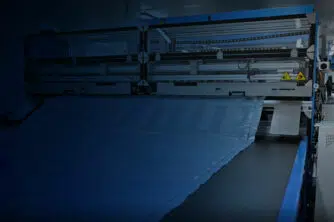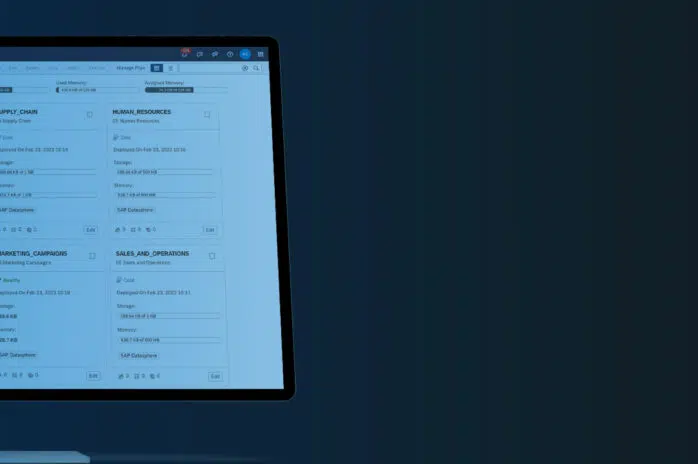Identifying the most critical wholesale distribution challenges is the first step toward overcoming them. Below we take a look at the five most pressing challenges faced by the distribution industry:
1. Inventory Management Challenges
Inventory is the backbone of any wholesale distribution business. This sounds relatively straightforward in theory, but in reality, it’s a much more complex world. Out-of-stocks disappoint customers and result in lost sales; overstock positions tie up precious capital and create all sorts of logistical problems regarding storage and handling. Introduce multi-warehousing, and the chances of even near-accurate inventory counts drop dramatically.
If you’re relying on outdated systems or manual tracking, you’re operating on borrowed time. Mistakes are inevitable, and when they happen, they can ripple through your entire operation.
How ERP helps
An ERP system can take inventory management off your plate in the best way possible. It uses inventory management software to give you real-time visibility into stock levels across all locations and automates reordering, so you’re never caught with too much, or too little, inventory. Additionally, demand forecasting tools help you plan smarter, minimising guesswork.
2. Order processing bottlenecks
Orders keep your business alive, but when your processing system is clunky or overly manual, it creates a chain reaction of inefficiency. Mistyped data, delayed approvals, and communication gaps between departments make fulfilling orders harder than it should be. Customers expect fast, frictionless service, and if you can’t meet those expectations, they won’t hesitate to turn to someone who can. The most challenging aspect of this issue is that as your business grows, these issues don’t just stick around, they multiply.
How ERP helps
An ERP system transforms order processing into a seamless, efficient operation. Order processing automation removes much of the more mundane aspects of manual data entry, and integrated workflows will see that your orders are moved effortlessly from one stage to another. With realtime updates accessible to everyone, your sales team, warehouse staff, and even your customers, delays are minimised, errors are reduced, and everyone stays on the same page. It’s smarter, faster handling that keeps your customers happy and your team at ease.
3. Lack of Supply Chain Visibility
Wholesale distribution lives and dies by the supply chain. Without transparency, you’re essentially flying blind. Are your suppliers hitting their delivery windows? Are costs creeping up without you noticing? Where are the weak links in your chain? Without answers to these questions, problems snowball into bigger issues, like missed deadlines and bloated costs.
How ERP helps
Distribution ERP solutions pull back the curtain on your supply chain, giving you a complete view of what’s happening at every step.This can be made so much easier with supplier portals and advanced analytics to help you keep track of performance, foresee delays, and identify areas of inefficiency. The visibility allows you to be more proactive and manage issues as they arise as opposed to constantly scrambling to put out fires.
4. Customer Service Inefficiencies
Customer service isn’t just a nice-to-have in wholesale distribution, it’s the thing that keeps customers coming back. But when your team doesn’t have access to accurate information or has to dig through fragmented systems to answer basic questions, it shows. Customers want fast, clear answers. If they don’t get them, they’ll look for a competitor who can deliver.
How ERP helps
An ERP gives your team access to the information they want when they want it. With the integrated CRM tool, they will have instant access to see customer order histories, product availability, and even the shipping updates all from a single source. Automated notifications keep customers informed without any extra effort on the part of your team, while self-service portals allow customers to find answers for themselves, lightening the workload for your staff.
5. Financial Management Headaches
Managing finances is a delicate balancing act. Late invoicing slows cash flow, while complex pricing and manual accounting systems leave many opportunities for errors to be made. These inefficiencies don’t just mean extra work-they limit your ability to grow.
How ERP helps
Financial management with an ERP simplifies a lot: automation of billing, report organisation, and insight into real-time cash flow. Handle your price changes, discounting, and profit analysis all within a system where the guesswork has been eliminated. That is no longer just nice; that’s essential for the growth of your business.
The Roadmap to ERP Success
An ERP system is not plug-and-play. It is a critical part of the wholesale digital transformation process, and like any change of this magnitude takes some planning and devotion. But it’s more than worth it.
Identify your greatest pain points, like those mentioned above, before selecting an ERP solution for wholesale distribution, in order to find the solution that best addresses your needs. Make sure to focus on solutions offering real-time inventory tracking, automation of workflows, and deep analytics.
Just as important as choosing the right software is properly training your team on how to use it. A system is only as good as those people operating it, so invest in proper onboarding to make sure everyone knows how to maximise its potential.
Finally, set measurable goals against which you can track the system’s impact. Whether it be a reduction in order processing time or an increase in inventory accuracy, having these very clear benchmarks will help you evaluate your return on investment and maximise your distribution business efficiency.
Why You Can’t Afford to Wait
The face of wholesale distribution is rapidly changing, and companies that aren’t keeping up are in jeopardy of lagging behind. Customers’ needs are changing to want faster service, increased transparency, and flawless accuracy-expectations which are tough to meet if proper systems are not in place.
An ERP system isn’t just an optional upgrade, it’s essential. It gives your business the foundation and flexibility to adapt, grow, and thrive in today’s demanding market.
If your business is ready to ditch inefficiencies and embrace digital transformation, now is the time to act. Schedule an ERP assessment with Codestone today, and take the first step toward a smarter, more efficient future for your wholesale distribution business.









































































